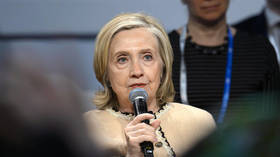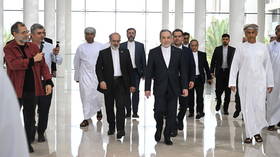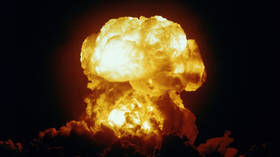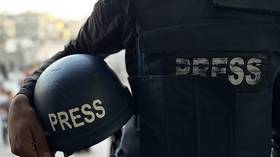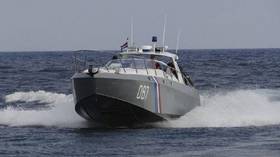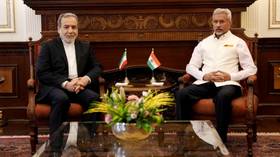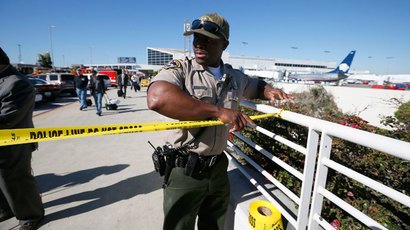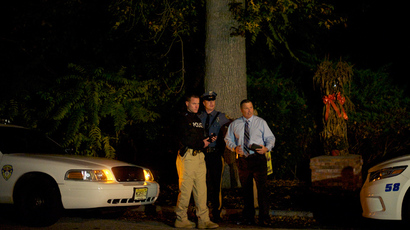Los Angeles airport shooting reignites calls to arm the TSA
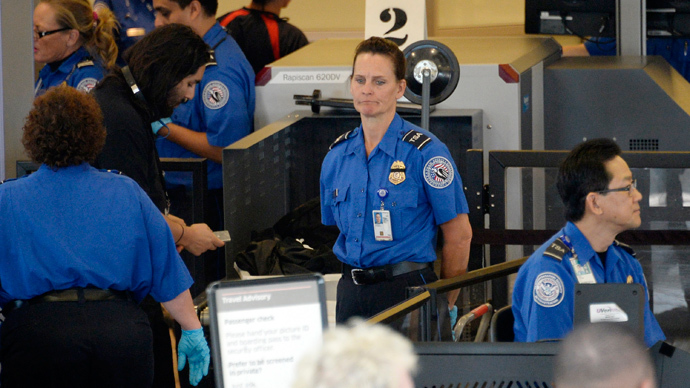
The killing of a TSA officer at the Los Angeles International Airport last week has reignited the debate over whether the agency’s staff should be given the ability to make arrests, as well as carry firearms.
On Friday a gunman opened fire at LAX’s Terminal 3, fatally shooting 39-year-old TSA officer Gerardo Hernandez, marking the first such incident for the TSA where one of its screeners was killed on the job.
Since its formation, the TSA has been tasked with developing procedures to thwart future airline hijackings, as well as bolstering security overall as a consequence of later bombing plots, such as 2003’s “Shoe Bomber” attempt, which led the agency to enact the mandatory removal of footwear during routine security screenings at US airports.
Though the agency may seem ubiquitous to most Americans and
international travelers now, the TSA is a fairly new offshoot of
the US Department of Transportation, and was made into its own
agency in the wake of the September 11, 2001 terrorist attacks by
the Bush administration, and placed under the Department of
Homeland Security in 2003.
In the wake of the deadly attack at LAX last week, which left one of the world's major air travel hubs paralyzed, lawmakers and the White House have pushed to review airport security procedures, while the TSA’s union has already expressed a desire to see the creation of a new category of TSA agents that would be able to carry guns and perform arrests.
Currently, the agency’s 45,000 screeners are not considered law enforcement officers. The TSA’s union, the American Federation of Government Employees, says that a new category of armed agents would bolster security throughout the country’s airports.
Ciancia began his shooting rampage at an escalator leading into the TSA security checkpoint at the terminal. He began to fire at TSA officials and other bystanders before being shot by armed airport police.
“We feel a larger and more consistent armed presence in screening areas would be a positive step in improving security for both [security officers] and the flying public,” said J. David Cox, president of the AFGE.
“The development of a new class of TSA officers with law enforcement status would be a logical approach to accomplishing this goal.”
Meanwhile, other union officials believe that the implementation of law enforcement officers within the TSA does not solve the whole issue.
“Just saying you can arrest somebody, how far is that going to get you?” asked AFGE general counsel David Borer.
“The focus needs to be on how do we deliver the right amount of security at the checkpoint,” he adds.
The TSA’s Administrator, John Pistole, has said that his agency will be reviewing its procedures in the wake of Friday’s attack.
Likewise, US Attorney General Eric Holder weighed in on Monday, saying that the federal government would be launching an investigation as “a review of the security measures that were in place not only at LAX but, I think, a review of the security arrangements that exist in other airports as well.”
Unlike prior terrorist attempts on the country’s air travel, last Friday’s attack at LAX by 23-year-old Paul Anthony Ciancia seemed squarely aimed at the security agency itself. Since the shooting, authorities have said that the gunman had walked through the airport terminal asking bystanders if they “were TSA,” and walking off if the answer was no. In Ciancia’s bag was also a hand-written note critical of the government, and stating he “wanted to kill TSA and pigs.”
"The sad truth is that our TSA officers are subject to daily verbal assaults and far too frequent physical attacks," said Cox.
Despite Friday’s incident, however, not everyone is keen to the idea of arming TSA agents.
Rep. Richard Hudson (R-NC), who currently chairs the House Homeland Security subcommittee overseeing the TSA, opposes the arming of the agency’s screeners.
“There are practical, risk-based steps that can be taken to combat potential attacks without arming 45,000 TSA screeners,” Hudson told Politico.
“In the wake of this attack it is of critical importance to review coordination and communication between TSA and local police, whose job it is to protect airports, as well as review TSA’s own programs for detecting and disrupting terrorist attacks.”
Several security experts cited by the Los Angeles Times also oppose the arming of TSA officers as an expensive diversion from the agency’s primary screening task, which would also radically alter the public’s perception of the agents.
"I want those guys focused on looking at my bag and looking at people," said Jeff Price, an aviation security expert who teaches at Metropolitan State University of Denver. Price believes that arming screeners would be an “overkill” move that could cost billions.
"There are other ways that you can provide the level of protection that the TSA screeners deserve without giving them all guns," said Price.
Meanwhile, Brian Jenkins, an authority on terrorism and aviation security at with Rand Corp., worries about an increase in encounters between the 800 million yearly air passengers with armed federal authorities.
"Heaven forbid we end up in a situation where in the course of a gunfight at a checkpoint, civilians were killed by friendly fire," said Jenkins. "This would be a catastrophe for the TSA."


